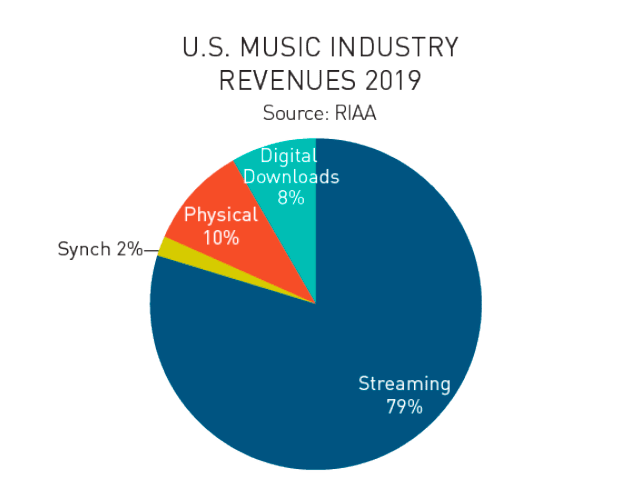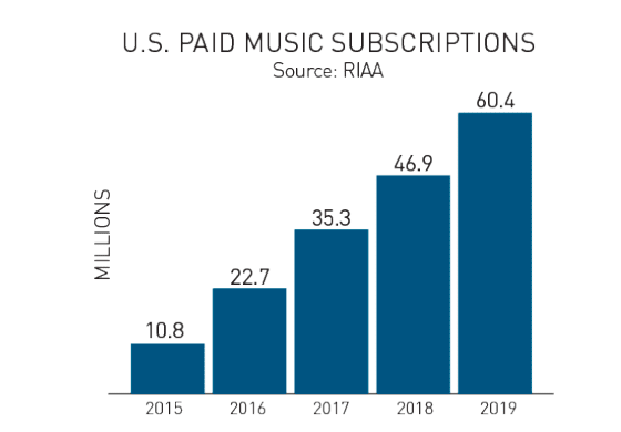The U.S. has been one of the very few that dominates the music industry, both offline and online.
On the internet where practically everything happens, U.S. music streaming services have been enjoying a steady and profitable business, naturally as it owns at least 80% of the entire music industry.
And here, giants like Universal Music Group, Sony Music Group and Warner Music Group jointly generated $22.9 million, on average, every 24 hours in 2019.
In other words, they collectively earned just under $1 million every hour.
Respectively, according to a report from Music Business Worldwide, the 'Big Three' reported $3.73 billion, $2.4 billion, and $2.21 billion, with their biggest selling artists in 2019 included Billie Eilish, Post Malone and Taylor Swift.
In comparison, the Big Three is larger than the entire U.S. recorded music market in just two years, accounting for 79.5% of all recorded music revenues.

The numbers are showing a major turnaround to record companies since the Napster era.
At that time, record companies were against online distribution. One of the most notable, was the Napster vs. Metallica in the year 2000.
But fast forward, the internet has become the medium of communication and transaction, and what were once "piracy" have become legitimate as companies and artists do get paid.
This certainly solidifies streaming giants like Spotify in the market, in which the media services provider is becoming the primary revenue driver for the three companies.
Revenues from ad-supported streaming services like YouTube and Spotify‘s free version also grew annually by 20%.

Going deeper into the numbers, it was reported that some 500 billion songs were streamed in 2019.
According to a report from RIAA, the number of paid subscriptions to on-demand streaming services rose 29% year-on-year, averaging 60.4 million throughout 2019, or up from 46.91 million.
These paying people are providing the most revenue to record companies, by bringing in $6.8 billion for the industry, up 25% on 2018, and almost two-thirds of all recorded music revenues in the U.S..
This trend makes a shift in how people listen to music.
With more people opting to listen to music by streaming, lesser listeners are downloading music.
With 600% more subscribers than in 2015, RIAA’s data showed that sales for permanent album downloads sank 21% to $395 million, while individual track sales fell 15% to $415 million in 2019.
And as for digitally download music revenues, it fell $18% in 2018 to hit $856 million. This marks the first time that its number reached below a billion dollars.
Digital and customized radio services like SiriusFM also took a hit, decreasing 4% year-over-year to $1.16 billion. People are buying vinyl though, a market 19% bigger than in 2018. For vinyl records, the revenue brought in $504 million in 2019 (its fourteenth straight year of growth and the most since 1988).